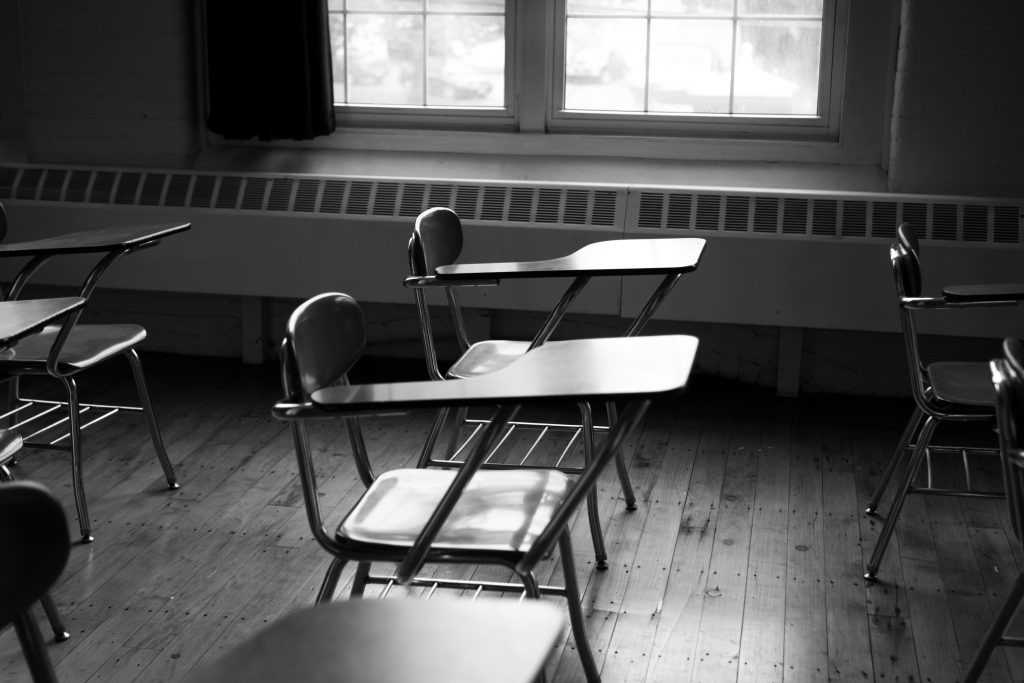This post is written by Bryan Christopher, NCTE’s P12 Policy Analyst from North Carolina. It is the fourth part of a series about Wildin Acosta, an undocumented student. You can read the first part here, second part here and third part here.
On Monday, January 23, the remarkable story of Wildin Acosta’s quest to earn a high school diploma quietly ended.
Wildin finished his math exam, said goodbye to a handful of friends and teachers, and walked out of Riverside High School having earned the remaining credits he needed to graduate. The moment occurred 361 days after US Immigration and Customs Enforcement (ICE) agents arrested him; 309 days after students, community members, and elected officials helped halt his deportation order; and 165 days after his release from Stewart Detention Center in Lumpkin, GA.
The moment also occurred three days after Donald Trump became the forty-fifth US president, and it leaves me wondering what lies in store for other immigrant students and their families.
Wildin’s journey—his arrest, six-month stay in prison, return home, and fall semester back at school—is a crash course in the many points at which immigration and education policies intersect. Those intersections will intensify in the weeks to come.
As schools and communities reacted to the executive action to temporarily ban visas, travel, and refugee admission for citizens of Iraq, Iran, Sudan, Syria, Somalia, Libya, and Yemen (before the State Department reversed it), many educators are also waiting anxiously to see what the Trump Administration does with President Obama’s signature immigration reforms.
Obama granted temporary legal status to undocumented migrants via two executive orders: Deferred Action for Childhood Arrivals (DACA) and Deferred Action for Parents of Americans and Lawful Permanent Residents (DAPA). Established in 2012, DACA grants temporary stays and work authorization to individuals who
- arrived in the United States before their sixteenth birthday;
- continuously resided in the United States since June 15, 2007, and had no lawful status at that time;
- were currently in school, earned a high school degree, or were honorably discharged from the armed forces or Coast Guard;
- have not been convicted of a felony, significant misdemeanor, or three or more other misdemeanors, and pose no threat to national security or public safety.
Source: UCIS flier
Two years later, DAPA granted certain parents of children who are US citizens or legal residents three-year stays and work authorizations.
Overturning DACA would affect nearly 800,000 “Dreamers” and affect schools and classrooms more than any wall or visa suspension. On the campaign trail, President Trump promised to end DACA, but he has softened his language since the election. In a January 26 interview with ABC News, he said his administration would release a new policy “over the next period of four weeks.”
As teachers, it is not our place to share our political opinions with students or their families, nor should we advocate for specific changes in policy while representing a public school. It is, however, our job to support our students, regardless of immigration status, and do everything we can to address their basic needs and deliver a sound education.
In an effort to best serve all students, teachers should understand how policy changes could impact their classrooms and look to support students in several ways:
- Monitor attendance. Follow up appropriately if a student is absent for multiple days and make sure there is counseling and mental health support available for students facing traumatic change within their families and homes.
- Know the laws. Educate yourself on federal and state immigration policies so that you can share accurate information. US Citizenship and Immigration Services is a good place to start.
- Find strength in numbers. Reach out to colleagues and civic and community organizations and work together to find ways to support students struggling with changing state and federal policies.
- Contact elected officials. Make them aware of the effects policies have on education. You see immigration and education policies intersect through your daily interaction with students. Lawmakers do not. Invite them to visit your school to witness the great things your students are doing. Thank them for their time and support!
Wildin’s journey is just one example of how informed community members can advocate for change without breaking federal or state laws. Regardless of the content you teach, be aware of policy changes and support your students as they adjust to a new political landscape.
 Bryan Christopher teaches English and Journalism at Riverside High School in Durham, NC. He’s also an NCTE Policy Analyst and Hope Street Teacher Voice Fellow. Email or Follow him @bryanchristo4.
Bryan Christopher teaches English and Journalism at Riverside High School in Durham, NC. He’s also an NCTE Policy Analyst and Hope Street Teacher Voice Fellow. Email or Follow him @bryanchristo4.

